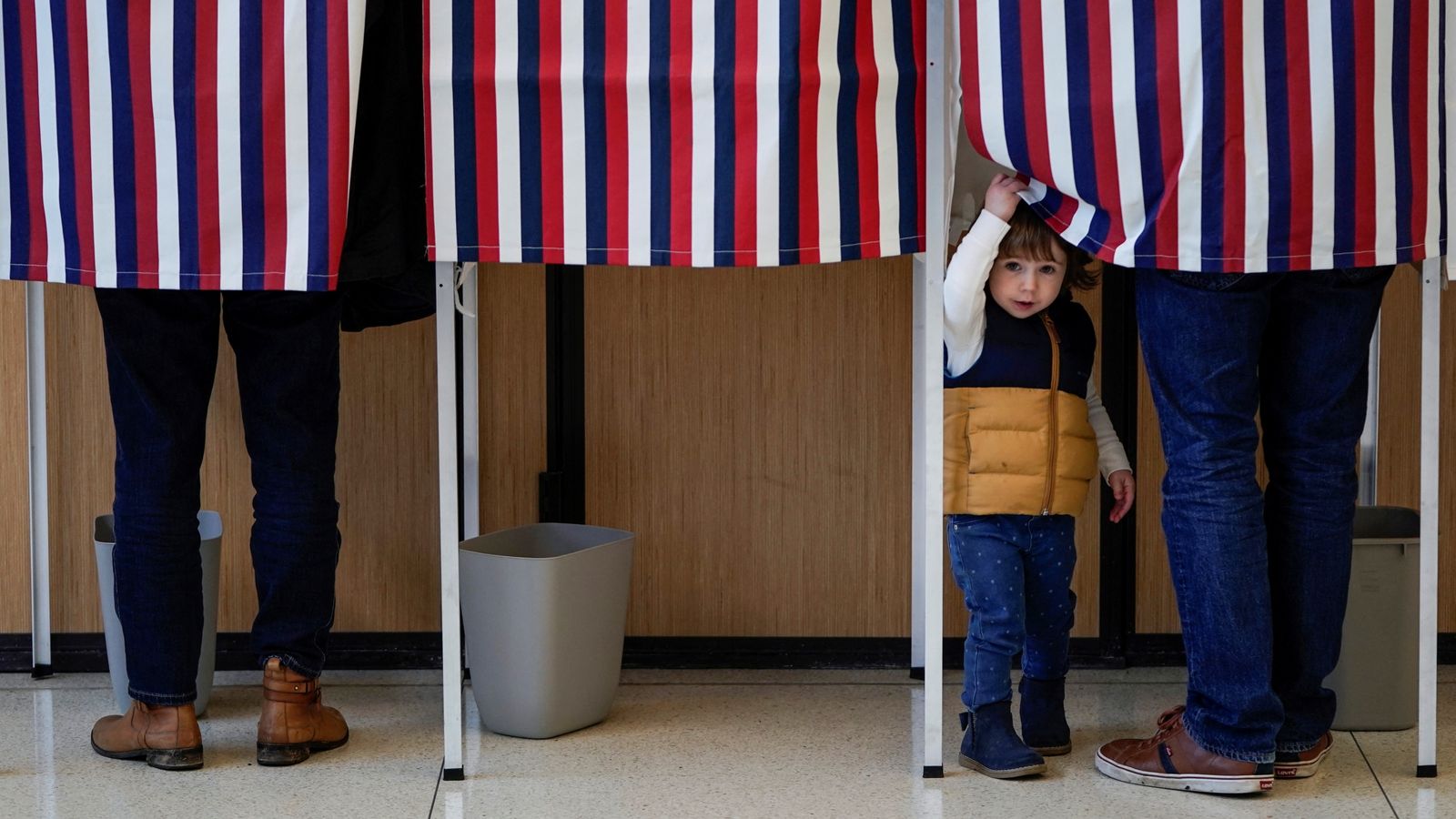French voters are heading to the polls as President Emmanuel Macron faces off against far-right candidate Marine Le Pen.
Ms Le Pen is posing an unexpected threat to Mr Macron‘s administration – and although he continues to lead the opinion polls, several surveys say this now falls within the margin of error.
The first round of voting begins at 8am (7am BST) this morning and ends at 6pm (5pm BST), at which time the first exit polls will be published.
Some French nationals living abroad in America and Canada have already cast their votes.
When are the French presidential elections, who is running, and how do they work?
Outcome wide open
Until just two weeks ago, it looked set to be an easy win for France’s pro-European centrist leader.
Emmanuel Macron calls Polish PM Mateusz Morawiecki ‘far-right antisemite’ after criticism of his Putin calls
When are the French presidential elections, who is running, and how do they work?
European markets jittery as France’s right-wing gather steam ahead of elections
But his late entry into the campaign – with just one major, and underwhelming, rally – and his focus on an unpopular plan to increase the retirement age has dented his ratings.
While Mr Macron’s focus has been on the war in Ukraine, the anti-immigration Eurosceptic Ms Le Pen has been boosted by a months-long focus on the cost of living crisis.
Riding on the back of a steep rise in inflation, she has also been helped by a drop in support for her main rival on the far-right, Eric Zemmour.
“We are ready, and the French are with us,” Ms Le Pen told cheering supporters on Thursday, urging them to cast a ballot for her to deliver “the fair punishment which those who have governed us so badly deserve”.
Mr Macron, who has held office since 2017, said of Ms Le Pen: “Her fundamentals have not changed: it’s a racist programme that aims to divide society and is very brutal.”
Ms Le Pen rejects the allegations of racism.
Read more: European markets jittery as France’s right-wing gather steam
Mr Macron, the youngest president in French history, has also been criticised in recent weeks for keeping an open dialogue with Russian leader Vladimir Putin.
Poland’s Prime Minister Mateusz Morawiecki compared the French president’s phone calls with Mr Putin to negotiating with Hitler.
In response, Mr Macron called the eastern European leader a “far-right antisemite who bans LGBT persons”.
Please use Chrome browser for a more accessible video player
What happens next?
This is just the first round of voting, and assuming no candidates win more than 50% of the vote – which hasn’t happened since Charles de Gaulle’s re-election in 1965 – the top two candidates make it through to the next round.
It is this second run-off, currently scheduled for 24 April, that will decide who becomes president. The two contenders are widely expected to be Mr Macron and Ms Le Pen.
However, the president does face a potential problem in the second vote, as many left-wing voters have told pollsters that, unlike in 2017, they will not vote for him purely to keep Ms Le Pen out of power.
“Marine Le Pen has never been this close to winning a presidential election,” Jean-Daniel Levy, of Harris Interactive pollsters, said of Ms Le Pen’s third run at the Elysee Palace.
Supporters of hard-left candidate Jean-Luc Melenchon, running third according to opinion polls, have called on left-wing voters to switch to their candidate and send him into the run-off.






















